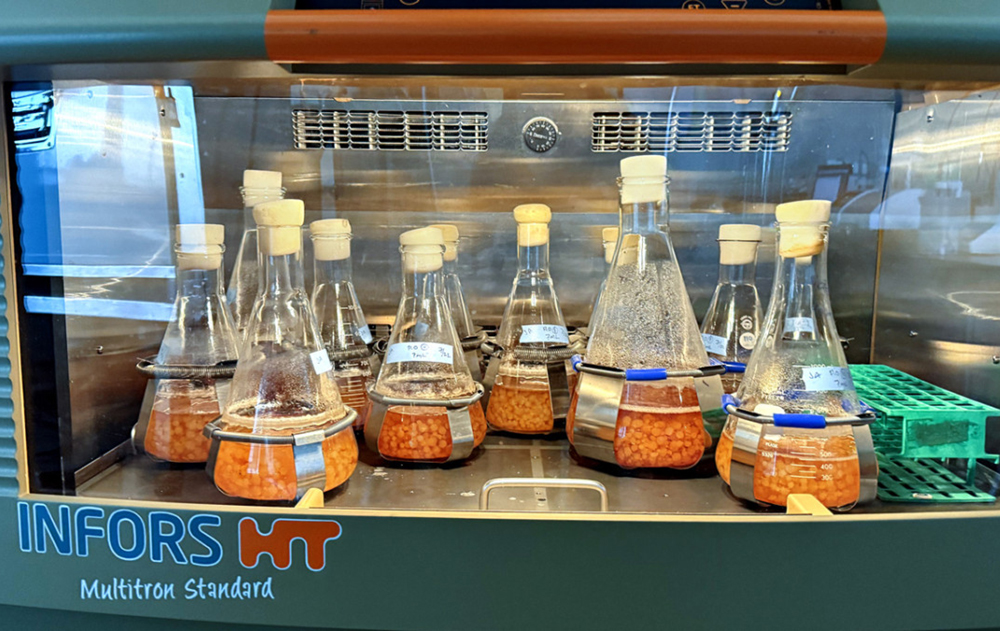

The Lancet and EAT warn half the world still lacks access to healthy food as report calls for urgent global food system overhaul
A new EAT-Lancet Commission report has issued a stark warning that the global food system is failing both people and the planet, driving health crises, inequality, and environmental breakdown. The 2025 report, published in The Lancet, builds on the landmark 2019 assessment to deliver the most comprehensive scientific analysis of global food systems to date.
It found that while the world produces enough calories to feed everyone, around 3.7 billion people lack reliable access to healthy food, clean environments, or living wages. At the same time, food production is responsible for roughly 30% of global greenhouse gas emissions and is the leading cause of transgressing planetary boundaries through its effects on climate, biodiversity, land, and water.
“Food systems are a major contributor to many of the crises we face today, and at the same time, the key to solving them,” said Shakuntala Haraksingh Thilsted, Commission Co-chair & Director for Nutrition, Health, and Food Security at CGIAR. “The evidence laid out in our report is clear: the world must act boldly and equitably to ensure sustainable improvements. The choices we make today will determine the health of people and the planet for generations.”
The report underscores that transforming food systems is not only a public health priority but a human rights issue. It calls for equitable access to nutritious food, fair labor conditions, and inclusive governance to address deep-rooted social inequalities.
Central to the Commission’s recommendations is the Planetary Health Diet (PHD) – a flexible, plant-rich dietary framework that emphasizes whole grains, fruits, vegetables, legumes, and nuts, with moderate consumption of animal-sourced foods. According to the analysis, widespread adoption of the PHD could prevent approximately 15 million premature deaths each year by reducing the risk of chronic conditions such as cardiovascular disease, diabetes, and cancer.
The PHD is associated with a 27% lower risk of premature death and could help lower global diet-related disease burdens while reducing food-related greenhouse gas emissions by more than 15% compared with 2020 levels. These gains rise to at least 20% when combined with halving food waste and adopting more sustainable production practices.
“The Planetary Health Diet is not a one-size-fits-all approach,” said Walter C. Willett, Commission co-chair and professor of epidemiology and nutrition at the Harvard T.H. Chan School of Public Health. “It allows for cultural diversity and individual preferences, providing flexibility within clear guidelines to achieve optimal health and sustainability outcomes worldwide.”
The report stressed that shifting toward plant-rich diets would not only cut emissions but also reduce land and water use and lower nutrient pollution. The framework accommodates regional and cultural variations and acknowledges that certain populations – such as pregnant women, infants, and young children – may require additional nutrition through fortification or supplementation.
Beyond dietary change, the Commission identified systemic reform as essential. Food systems currently impose hidden costs estimated at US$15 trillion annually through healthcare burdens and environmental degradation. In contrast, annual investments of between US$200 billion and US$500 billion to transform global food systems could deliver returns of more than US$5 trillion per year in health, productivity, and environmental savings.
Food production was found to be one of the largest sources of greenhouse gas emissions globally, driven by livestock production, methane from rice cultivation, deforestation, and fertilizer use. The Commission warned that food systems are responsible for breaching five of the nine planetary boundaries – thresholds that define a safe operating space for humanity.
“Transforming food systems is a significant environmental and social challenge, but it is a precondition for us to have a chance of returning within a safe climate system and a healthy planet,” said Johan Rockström, Commission co-chair and director of the Potsdam Institute for Climate Impact Research. “How we produce and consume food affects the air we breathe, the water we drink, the soil that grows our crops, and the health and dignity of workers and communities.”
The report also highlighted deep inequalities in how food is produced and consumed. The diets of the wealthiest 30% of the global population account for about 70% of total environmental pressures caused by food systems, while nearly half of humanity cannot afford a healthy diet. Around 32% of food system workers earn below a living wage, and millions of children remain trapped in agricultural labor.
“Equity and justice are not optional – they are prerequisites for resilient and sustainable food systems,” said Christina Hicks, Commissioner and professor of social science at Lancaster University. “Without addressing entrenched inequalities within current food systems, no transformation will be complete or lasting.”
Modeling by the Commission suggested that by 2050, adopting the Planetary Health Diet alongside ambitious climate policies could more than halve food-related greenhouse gas emissions, from 7.35 gigatons to 2.75 gigatons of CO₂ – equivalent to removing all coal-fired power plant emissions worldwide. The same scenario would free up 7% of agricultural land for biodiversity restoration while creating economic opportunities in plant-based agriculture.
The Commission proposed eight interlinked actions to create healthy, sustainable, and just food systems. These include promoting dietary shifts toward the PHD, protecting traditional diets, advancing sustainable farming practices, reducing food loss and waste, safeguarding natural ecosystems, ensuring fair labor standards, empowering smallholder and marginalized communities, and providing social safety nets and equitable resource access.
It also urged governments, businesses, and civil society to collaborate on science-based policies – combining taxes on unhealthy foods with subsidies for fruits, vegetables, and legumes; supporting regenerative agriculture; and expanding programs such as healthy school meals.
“Our recommendations are grounded in scientific evidence and real-world experience,” said Line Gordon, Commissioner & Director of the Stockholm Resilience Centre at Stockholm University. “Investing in and scaling up efforts to reshape global food systems now is the best way to build toward a sustainable, equitable future.”
In a linked comment, Lancet Editor-in-Chief Richard Horton and Consulting Editor Tamara Lucas called the report a “collective call to action”. They wrote, “Now that we have the knowledge and scientific evidence, it is a collective responsibility to act to save and repair the planet’s systems before it is too late. The reward of food justice for all will be restored balance of Earth’s natural systems, and the nourishing sustenance that is healthy and delicious food.”
The Commission’s work was supported by the IKEA Foundation, The Rockefeller Foundation, Wellcome Trust, The Children’s Investment Fund Foundation, Novo Nordisk Foundation, and the Bill & Melinda Gates Foundation.
If you have any questions or would like to get in touch with us, please email info@futureofproteinproduction.com

.png)






